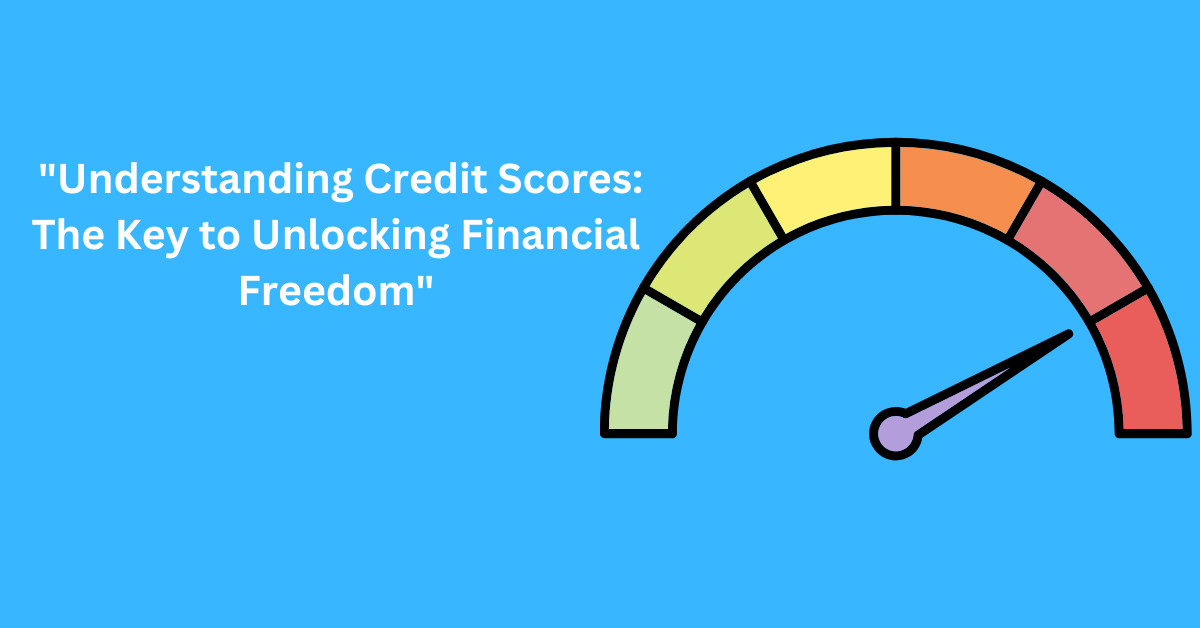Your credit score is an important measure of your financial health. Whether you are approved for a loan or credit card. no It can be determined by the interest rate. In this guide, any credit scores; We’ll explore how to calculate them and how they can empower you to unlock financial freedom.
What is a credit score?
A credit score is a three-digit number that represents your credit worthiness. your credit history; It’s calculated based on information from your credit report, which includes outstanding debt and payment history. Credit scores range from 300 to 850, with higher scores indicating better credit worthiness.
Credit scores are used by lenders to determine the risk of lending you money. The higher your score, The less likely you are to get one. Better loan terms and lower interest rates. On the other hand, A low score can lead to higher interest rates and even rejection of credit applications.
How to calculate credit scores
credit card companies; Credit scores are calculated by credit bureaus that gather information from a variety of sources, such as lenders and public records. The most common credit bureaus are Equifax; Experian and TransUnion.
Credit scores are calculated by several factors, including:
Payment History: Your payment history accounts for 35% of your credit score. Late payments and missed payments can hurt your score.
Credit Utilization: Your credit utilization ratio makes up 30% of your credit score. This is the amount of credit you are using compared to the amount of credit you have available. Keeping your credit utilization below 30% can improve your score.
Length of Credit History: The length of your credit history accounts for 15% of your credit score. The more credit you have, the better. The better for your score.
Credit mix: credit cards; The types of debt you have, such as loans and mortgages, count for 10% of your credit score. A mix of different types of credit can benefit your score.
New Credit: New credit applications account for 10% of your credit score. Applying for too much credit in a short period of time can hurt your score.
How to improve your credit score
Improving your credit score takes time, but there are steps you can take to see positive results. Here are some tips to help improve your credit score.
Pay your bills on time: Late payments and missed payments can have a significant negative impact on your credit score. Make sure you pay your bills on time every month.
Lower your credit utilization: Keeping your credit utilization below 30% can have a positive impact on your credit score. If you have high balances, consider paying them down to improve your score.
Check your credit report for errors: Errors on your credit report can affect your score. Be sure to check your credit report regularly and dispute any errors.
Keep Old Credit Accounts Open: The length of your credit history is an important factor in your credit score. Keep old credit accounts open even if you don’t use them regularly.
Limit new credit applications: Applying too much credit in a short period of time can hurt your credit score. Apply for credit only when you need it.
Unlocking Financial Freedom.
Having a good credit score gets you better loan terms. Access to credit cards with lower interest rates and better rewards can unlock financial freedom. By understanding what goes into your credit score and taking steps to improve it. You can open up opportunities to achieve your financial goals.
In conclusion, A good credit score is essential to unlocking financial freedom. You can better yourself by understanding how credit scores are calculated and taking steps to improve yours.

